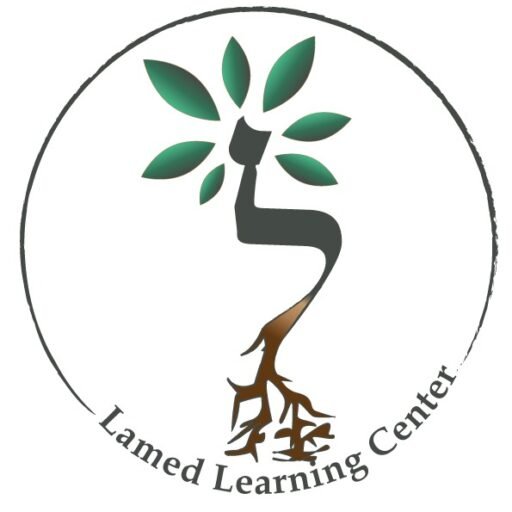
We recently drove down to Washington, D.C. to visit The Natural History Museum. One of the things I find interesting about our society is how much we are influenced by empires of the past, for example, Rome and Greece. Both nations were very visual and had an obsession with the physical. Both were cultures of art, architecture, theater, and spectacle. In D.C. there are statues of naked men and women on many of the buildings. In contrast, Judaism is a non-visual culture. We worship a G-d we cannot see, but we hear G-d. Making sacred images is forbidden Which is mentioned in the 10 Commandments and in the Parasha last week- Vaetchanan. By listening, we open ourselves up to knowing G-d. This is what Moshe is saying by repeating the words of the Shema and throughout the book of Devarim.
We all truly want someone to listen to us. I am definitely guilty of not fully listening and it is definitely something I am working on. There’s a story Victor Frankl shares in his book A Man’s Search For Meaning, one of his patients phoned him in the middle of the night to tell him, calmly, that she was about to commit suicide. He kept her on the phone for two hours, giving her every conceivable reason to live. Eventually she said that she had changed her mind and would not end her life. When he next saw the woman, he asked her which of his many reasons had persuaded her to change her mind. “None,” she replied. “Why then did you decide not to commit suicide?” She replied that the fact that someone was prepared to listen to her for two hours in the middle of the night convinced her that life was worth living after all.
I’m also learning this with my children. They are so full of curiosity and excitedly share what they find. It is so easy to get caught up in work and things I must do, emails to check and the milieu of things that call my attention. However, I can see a huge difference in my children when I truly listen to them. The same is true for all relationships.
In Parashat Ekev, Moshe reminds us of the second part of the Shema.
וְהָיָ֗ה אִם־שָׁמֹ֤עַ תִּשְׁמְעוּ֙ אֶל־מִצְוֺתַ֔י אֲשֶׁ֧ר אָנֹכִ֛י מְצַוֶּ֥ה אֶתְכֶ֖ם הַיּ֑וֹם לְאַהֲבָ֞ה אֶת־יְהֹוָ֤ה אֱלֹֽהֵיכֶם֙ וּלְעׇבְד֔וֹ בְּכׇל־לְבַבְכֶ֖ם וּבְכׇל־נַפְשְׁכֶֽם׃
וְנָתַתִּ֧י מְטַֽר־אַרְצְכֶ֛ם בְּעִתּ֖וֹ יוֹרֶ֣ה וּמַלְק֑וֹשׁ וְאָסַפְתָּ֣ דְגָנֶ֔ךָ וְתִירֹֽשְׁךָ֖ וְיִצְהָרֶֽךָ
וְנָתַתִּ֛י עֵ֥שֶׂב בְּשָׂדְךָ֖ לִבְהֶמְתֶּ֑ךָ וְאָכַלְתָּ֖ וְשָׂבָֽעְתָּ
הִשָּֽׁמְר֣וּ לָכֶ֔ם פֶּ֥ן יִפְתֶּ֖ה לְבַבְכֶ֑ם וְסַרְתֶּ֗ם וַעֲבַדְתֶּם֙ אֱלֹהִ֣ים אֲחֵרִ֔ים וְהִשְׁתַּחֲוִיתֶ֖ם לָהֶֽם
“If you obey the commandments that I enjoin you this day, loving the Lord your G-d and serving him with all your heart and soul, I will grant the rain for your land in season, the early rain and the late. You shall gather in your new grain, wine and oil. I will also provide grass in the fields of your cattle and thus you shall eat your fill. Take care not to be lured away to serve other gods or bow to them” (Devarim 13-16).
The Rebbe explains that there are two basic ways in which a person acquires something: via a gift or earning it through our own achievement. Each one has advantages and disadvantages. We tend to appreciate things more when we put in the work necessary to achieve it. What is given can also be taken away. Something that is achieved out of our own work, nothing can take that away. This difference, says the Rebbe, is also between two of our senses: sight and hearing. Sight gives us information all at once. The eye sees all of the details simultaneously; the mind processes all of the information that the eye sees. Our hearing is different. We can only hear one sound at a time. We can hear only sentence by sentence. We piece what we hear together, bit by bit.
In the Parasha last week, Moshe asks to see the land, he asks for the gift of sight. Our sages tell us that Moshe wanted the land of Israel to be given to B’nai Yisrael. Had this request been granted, B’nai Yisrael would have received Israel as a supernatural gift, instead of earning it through their efforts: winning the battles city by city. In Parashat Ekev, Hashem reminds us to do each commandment, even the simple mitzvot that we may “trample with our heels.” Ekev is the building of our relationship from the bottom up, from our heels to every part of our bodies.
Our relationship with G-d is a result of our effort. Through our observance, we will precipitate the redemption. Our sages tell us that when we do our part, G-d will keep his promises and bring forth the redemption. Perhaps all of the insanity of our world, all of the things that seem backwards and don’t make sense; perhaps this is ushering in the coming of Mashiach. Perhaps our duty is to continue to become better and to increase our good deeds. May Mashiach come speedily in our days, so that we may be gathered from the four corners of the world and return to our wonderful land, we will have peace throughout the world, and Humankind will be preoccupied with only one pursuit: the study of G‑dly wisdom. “The earth shall be filled with knowledge of G‑d as water covers the seabed” (Isaiah 11:9).
